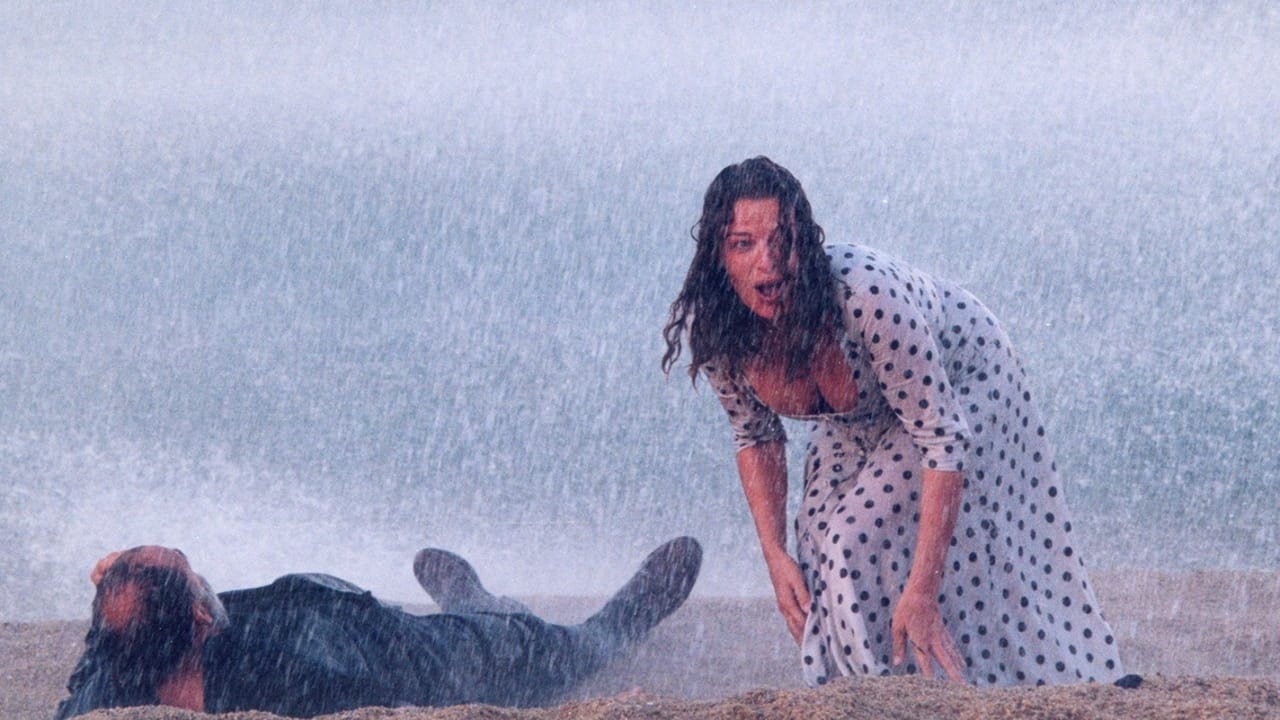WasAnnon
Slow pace in the most part of the movie.
Orla Zuniga
It is interesting even when nothing much happens, which is for most of its 3-hour running time. Read full review
Myron Clemons
A film of deceptively outspoken contemporary relevance, this is cinema at its most alert, alarming and alive.
losindiscretoscine
Final episode of a trilogy that got started at the beginning of the 90s, Angelopoulos asks himself the same questions that the writer Samuel Beckett once did: how to end? And he adds a new precision that will make an impact in the final answer: how to end one's life when there is only one day left to live? It is when our time is limited that we paradoxically make the most of it and we understand this by witnessing Alexandre's trip between the past, the present and the future in the last day of his life. Even though he metaphorically travels through his memories, his present will to take the boy to the border gives him the chance to make a last good action before his death. The photography, that goes from cold colours for scenes from the present to warm colors for the flashbacks, is dazzlingly full of sobriety. The words from the letters that give this poetical Odyssey its tempo are so wise that they fill us with wonder. And when we finally get the answer to the question "Tomorrow, how long does it last?", we realize that Alexandre is ready and he is no longer afraid to die. "Eternity and a day" is a magnificent legacy of this director who passed away too early but who left us several masterpieces and awards. Full review on our blog Los Indiscretos : https://losindiscretos.org/english/eternity-and-a-day-1998- theodoros-angelopoulos/
jandesimpson
The tragic death of Theo Angelopoulos in a street accident early this year deprived us of one of cinema's greatest poets. His was a unique way of looking at the world, so much so that he seemed to attract admirers and detractors in equal number. To love his work, however, is to have succumbed to an adagio tempo that allows us to meditate, as we watch,, on what is being revealed, be it character, history or legend. So strongly is the spirit of place conveyed that the viewer feels he is actually there in those wintry landscapes of northern Greece that Angelopoulos made very much his own.Possibly the single most important DVD issue in recent months has been Artificial Eye's release of all Angelopoulos's feature films in three boxed sets. This has enabled me to fall in love again with the few I previously knew such as "Landscape in the Mist", "The Beekeeper" and "Eternity and a Day" and to discover other masterworks such as "The Travelling Players" and "The Suspended Step of the Stork". If I concentrate this review on "Eternity and a Day" it is because it is the most recent I have re-experienced after a gap of several years. In many ways this study of a possibly terminally ill writer meditating on his life whilst at the same time struggling with his present, is the director's most personal film. Certainly it is his most immediate in the way it gets far nearer to its characters than usual, often viewing them in close-up rather than middle distance. The film commences with the boy Alexander responding, as he wakes one summer morning, to the summons of his friends to join them on the beach which faces his family home. Thereafter we only see him as an old man regardless of the time zone into which the film slips. Indeed it is the fluid use of time, often passing from present to past within a single shot, that is a salient and wonderfully satisfying feature of an Angelopoulos film. In his bleak present Alexander often thinks back to a day of perfect happiness, shortly after the birth of his daughter, with his late wife and family on the beach where he played as a child. There is little comfort in a present that prefigures the end. About to admit himself to hospital he visits his daughter hoping to leave his dog with her, only to find that his beloved house by the sea is about to be sold to developers. The big issues of history with which Angelopoulos is usually preoccupied are largely absent apart from the refugee problem resulting from the Balkan conflict. Alexander's accidental encounter with a young Albanian boy whom he rescues first from a police raid on a gang of unsolicited traffic window cleaners and later from child adoption racketeers provides the temporary solace of someone to care for during a period of almost unendurable loneliness. Like many brief and meaningful encounters this is short lived. The boy is about to board a ship for yet another clime. What to do to while away their last hour before departure? A nearby bus operating a circular city route provides an answer that fills the youngster's face with glee. It proves to be a magical ride taken by an assortment of characters, a querulous couple, a tired revolutionary from some demonstration bearing a cumbersome red flag, a trio of conservatoire musicians who perform more for themselves that for those around them and finally the poet from a previous century whom we have met earlier in the film searching for and buying words of an unfamiliar language. Who but Angelopoulos could have conjured up such an imaginative conceit! Moreover, those three cyclists clad in yellow heavy waterproofs who appear in other of his films (I read somewhere that they represent the Fates) take the same journey as the bus. Alexander is sad in the knowledge that he may be approaching death without finishing the book he is writing. Ironically Angelopoulos died before completing the final film of the trilogy he had been working on since "Eternity and a Day". Tragic as this was, there is at least the consolation that he left behind him some of the most heartbreakingly beautiful films the cinema has given us.
larma7
If I saw this and "Landscape in the Mist" a year ago or so, I'm not sure if I would like them or even be able to finish them. Brought to my attention by the tragic passing of this great director, I feel like these films are hitting me at the right time. Because while I can perhaps understand that some may find something like "Eternity and a Day" to be boring, self- indulgent, or the most notorious pretentious -- on the other hand, it is for me something enchantingly beautiful and unlike few if any movies I have seen before. The angle I'm going to use to approach this one might be far-reaching and/or random, but bear with me and realize I usually tend to mentally tie-in what I have just watched into what I have watched previous. But in this case, it is what I have just read. I couldn't help but think of the character of this film as the Stephen Dedalus character from Joyce's "A Portrait of the Artist as a Young Man", but now 40 years or so into the future, on his death-bed and in despair. The protagonist here, likewise a poet, has lived a detached isolated existence from his wife and family. It is what Stephen would have wanted, so as to express himself freely as possible, but now in the waning years of his life the detachment has left him with an emptiness, a void he is trying to somehow fill (again, harking back to the oppressive emptiness felt in "Landscape in the Mist"). Angelopoulos incorporates letters from the characters' wife, narrated by her in poignant fashion, and often seamlessly transitions into flash-backs. This is again something intimate, yet suddenly sprawling. While initially one is enveloped in a natural setting, Angelopoulos then soon drifts into the fantastical and dream-like. Like with "Landscape in the Mist", it all shouldn't be taken so literal. I believe to derive the greatest pleasure from this one should just sit back and let Angelopoulos take you where he wishes, for even if some stretches may not fully register, the high-points so totally make up for it. And once again, the visual compositions are just astounding and at the very least continuously interesting, with here the often long takes aren't even as noticeable straight away and once I realized them, I was then amazed in some scenes. There is this purity in the visuals which few directors works have been able to match and none surpass. Purity is probably the best and only way I can describe it.
johndav
Shamefully neglected in Britain,Angelopoulos is one of modern cinema's few remaining grand masters.Here he loads his tale- of a terminally ill poet who leaves his family seaside home and befriends a refugee Albanian boy- with not only his usual intellectual rigour and visual majesty,but also massive emotional resonance.A mesmerizing journey seamlessly interchanging sundrenched memories and landscapes in the mist: bleakness illuminated with shafts of purest joy,it is a film touched by angels.

